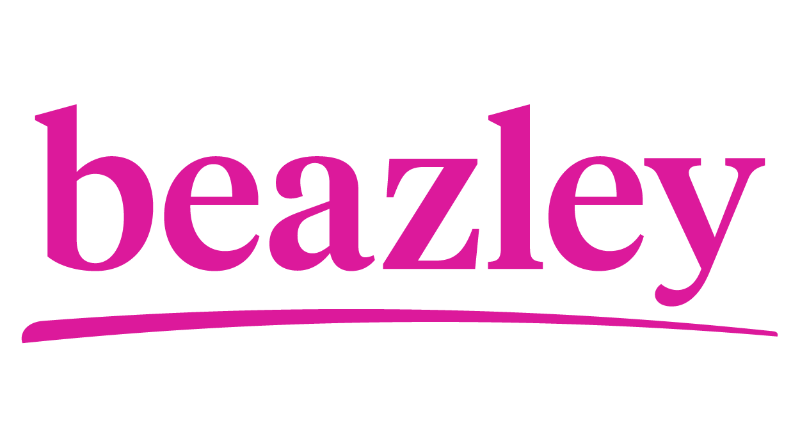Covid-19 (coronavirus) and your business
Confused about how Covid-19 affects your business insurance? Get answers at our Covid-19 FAQ.
If you have employees, protect them with Covid-19 Infection Insurance.
Employee Health Benefits Insurance (Company Health Insurance) in Singapore
Starting from just $16/month, per employee. Quote in 24 hours.
Compare quotes from leading insurers












Save up to 25% on premiums
Quick quotes for all products
Advisors available 7 days/wk
Employee Health Benefits (a.k.a. Company Health Insurance), can be configured to pay for hospital treatment, GP/specialist visits, dentist visits, lump-sum payouts after accidents, and more.
An Employee Health Benefits plan provides comprehensive medical coverage for your company. It can cover a very wide variety of medical costs: hospitalisation & surgery fees, GP visits, dentist visits, eye care visits, Critical Illness payouts, Personal Accident payouts, and more. Plans can be customised to offer a basic level of coverage, or to offer generous coverage that would rival even the most premium of private health insurance plans.
Given the high cost of healthcare in Singapore, a good Employee Health Benefits plan is a great way for businesses to attract new employees, retain existing ones, and reward them for their hard work. When designed well, Employee Health Benefits plans are a powerful way to ensure your staff do their very best, and are happy working with your company.
What does Employee Health Benefits Insurance cover?
Base cover:
- Hospitalisation and Surgery costs (i.e. inpatient costs): Pays for hospitalisation and surgery costs – e.g. due to illnesses like cancer, treatment following an accident, etc.
Add-on covers:
- Outpatient GP visits: Pays for GP costs for flu, cold, etc.
- Outpatient Specialist visits: Pays for Specialist costs for consultation, medication, MRIs, etc.
- TCM visits: Pays for TCM treatment.
- Dentist visits: Pays for basic dental work like cavity filling, scaling, polishing, etc.
- Eye Care visits: Pays for optician consultation, and new glasses when required.
- Group Life Insurance: Life insurance offered at discounted rates.
- Group Personal Accident payout: Lump-sum cash payout after an accident.
- Group Critical Illness: Lump-sum cash payout if diagnosed with specified critical illness, e.g. cancer.
What are some claim examples?
Example 1: Cancer
Let’s say one of your employees, Natalie, becomes very ill one day. Natalie visits a hospital, where she is unfortunately diagnosed with cancer. The oncologist (cancer specialist) who is treating Natalie recommends surgery to quickly remove malignant tumours, followed by 6 weeks of aggressive Chemotherapy to kill off cancerous cells. Natalie undergoes the surgery, and is hospitalised for 3 days for post-surgery observation. The Chemotherapy, while effective, also happens to make Natalie very frail. While recovering at home one day after receiving Chemotherapy, Natalie accidentally slips in the bathroom, and breaks multiple bones. Here’s how an Employee Health Benefits plan would help Natalie:
| Treatment | Employee Health Benefits coverage |
| Consultations with oncologist (cancer specialist) | Covered under basic plan |
| Room & board while hospitalised | Covered under basic plan |
| 6 weeks of Chemotherapy | Covered under basic plan |
| Surgery to remove tumour | Covered under basic plan |
| Lump-sum cash payout upon cancer diagnosis | Covered under Critical Illness add-on |
| Lump-sum cash payout upon accident from fall | Covered under Personal Accident add-on |
Example 2: Chronic medical condition + stroke
Tim is a sales manager at your company. Tim has a chronic medical condition, which requires him to visit the GP every month for a regular check-up. One day, while working from home, Tim suddenly suffers a stroke. His family rushes Tim to the hospital’s A&E department. Doctors administer a blood thinner to try to clear Tim’s blood clot. He is hospitalised in the ICU for 3 weeks, for close monitoring, and is eventually discharged. Although Tim survives, he is unfortunately left permanently disabled by the stroke. Here are the costs that an Employee Health Benefits plan would cover:
Treatment | Employee Health Benefits Coverage |
GP consultation and medication | Covered under GP visits add-on |
Treatment in A&E | Covered under basic plan |
Room & board while hospitalised in ICU | Covered under basic plan |
Lump-sum payout for permanent disability due to stroke | Covered under Critical Illness add-on |
What does Employee Health Benefits not cover?
When you first purchase an Employee Health Benefits plan, the plan will usually come with a mandatory “waiting period” (e.g. 6 or 12 months). During this “waiting period”, you cannot file any medical expense claims. This is to prevent medical expense fraud, which in turn keeps premiums more affordable for businesses.
A common question we get from clients concerns the different between Employee Health Benefits vs Work Injury Compensation Insurance (WICA Insurance). An Employee Health Benefits plan can cover both work-related and non-work related injuries, while WICA Insurance can only cover work-related injuries. Employee Health Benefits Insurance is therefore not a substitute for Work Injury Compensation Insurance (WICA Insurance). WICA Insurance is legally compulsory for i) manual workers, and ii) any worker who earns <$2,600/month, regardless of job scope.
An Employee Health Benefits plan is not the same as Foreign Worker Medical Insurance. If you are hiring foreigners, you must purchase a mandatory Foreign Worker Medical Insurance policy. You cannot substitute Employee Health Benefits for Foreign Worker Medical Insurance. If you decide to purchase Employee Health Benefits, it will provide an additional form of medical benefits, on top of your Foreign Worker Medical policy.
Do I need Employee Health Benefits?
This type of insurance is helpful if:
You want to offer attractive benefits to retain & motivate your employees, and attract new hires.
- You want to help your employees get back to work quickly. Cash payouts will greatly help your workers with medical expenses.
- You want to be seen as a caring employer, making sure your employees and their families are well looked after in case of unfortunate accidents.
What is the minimum group size for Employee Health Benefits?
The minimum group size is only 2 employees, which makes it perfect even for small companies looking for health insurance coverage.
How much health insurance coverage does my company need?
It depends on various key factors:
- Intended goals of having employee health benefits (e.g. offering basic staff welfare, or wanting premium plans to attract/retain the best talent)
- Company size
- Average age of employes
Given the complexity of Employee Health Benefits, it’s recommended to speak with one of our experts who can advise you on the best plan for your needs.
How much does Employee Health Benefits Insurance cost?
Premiums will generally start from $16/month, per employee for a basic level of coverage. Premiums will vary depending on the level of coverage chosen, and the average age of your employees.